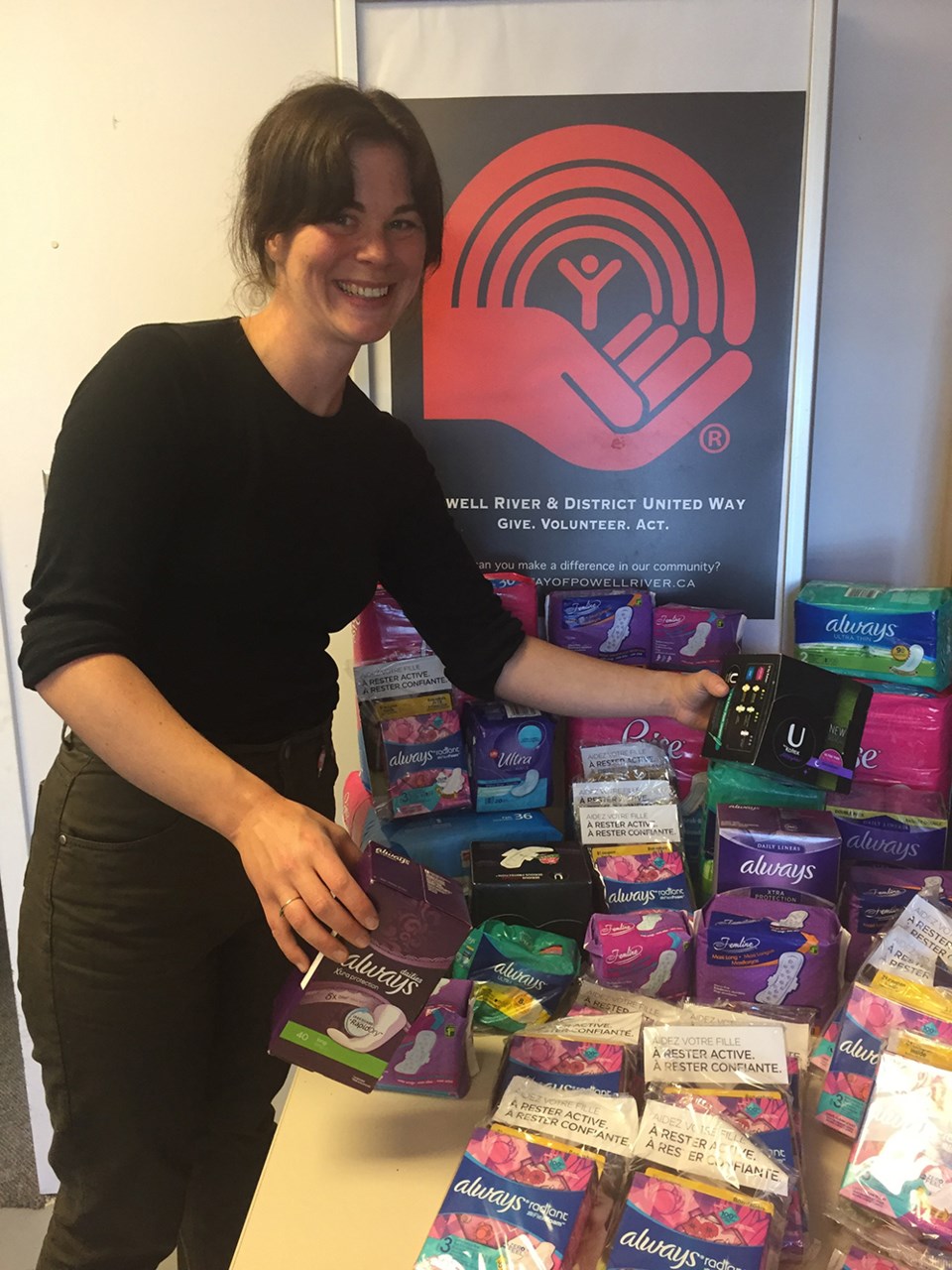Access to menstrual products has an impact on more than half the world’s population, including women in qathet Regional District (qRD).
“The stigma around menstruation means people don’t talk about it and we need it to be okay to talk about,” says Julie Jenkins, director of community engagement and resource development for the local United Way. “How do we get social policy changes if we aren’t able to name the issue?”
Powell River and District United Way and other United Ways across BC are in the midst of a campaign called Period Promise to address period poverty in relation to menstrual products access.
While the campaign officially concludes June 3, donations of supplies and money will be accepted past that date.
United Way released a study last March that found that more than a quarter of women in BC have gone through one complete period without access to menstrual products.
“The results of the survey are really powerful,” says Jenkins. “Single moms tell about having to decide on food or pads for themselves or their daughters.”
Approximately 51 per cent of respondents said they had struggled to purchase products.
Access to menstrual products are “a make or break situation to full participation in the community,” says Jenkins.
Not having access to menstrual projects is an isolating factor resulting in missing school, work and social events, she adds.
Women in qRD were included in the survey, which was circulated through Powell River Action Centre Food Bank.
Annual campaign continues
United Way already has a program called the Hygiene Cupboard and runs an annual campaign every fall to acquire tampons, pads and menstrual cups.
“We always run out before the next year so we ask community members if they are going to the store to buy extra and connect with us to drop off at our office or for them to be picked up,” explains Jenkins.
The office is up the stairs by the exit to the RONA Powell River lumber yard where there will be a tote to receive donations.
People are also encouraged to organize a collection campaign at work or school. Brooks Secondary School Interact, a youth program sponsored by Rotary clubs in Powell River and their international organization, raised funds through a pizza sale earlier this year and recently donated just over $180 to the program.
“It’s so wonderful to see the youth support we receive both monetarily and through volunteering,” says Jenkins.
BC’s government has mandated that free menstrual products be available in all schools in the province, which helps that age group during the education term.
Traditionally United Way holds a big community drive, connected to another event, but with COVID-19 restrictions that has not been able to occur.
“Another way people can help is to make a donation right through our website, which is very helpful because we are able to get discounts on bulk buying,” says Jenkins.
Hygiene Cupboards are located at Community Resource Centre, Family Place, Vancouver Coastal Health’s harm reduction location at Powell River General Hospital and food banks in Powell River and on Texada Island.
Jenkins adds the local United Way sent out a survey to a number of organizations that currently don’t have cupboards and will be getting back to them about making menstrual products available to their clients.
More information is available by calling 604.485.2132.
Here is a link with more information about the local Period Promise campaign: unitedwayofpowellriver.ca/period-promise.html.
For more information about the research study including funding (by the Government of BC) and findings, go to: periodpromise.ca/pages/research.



